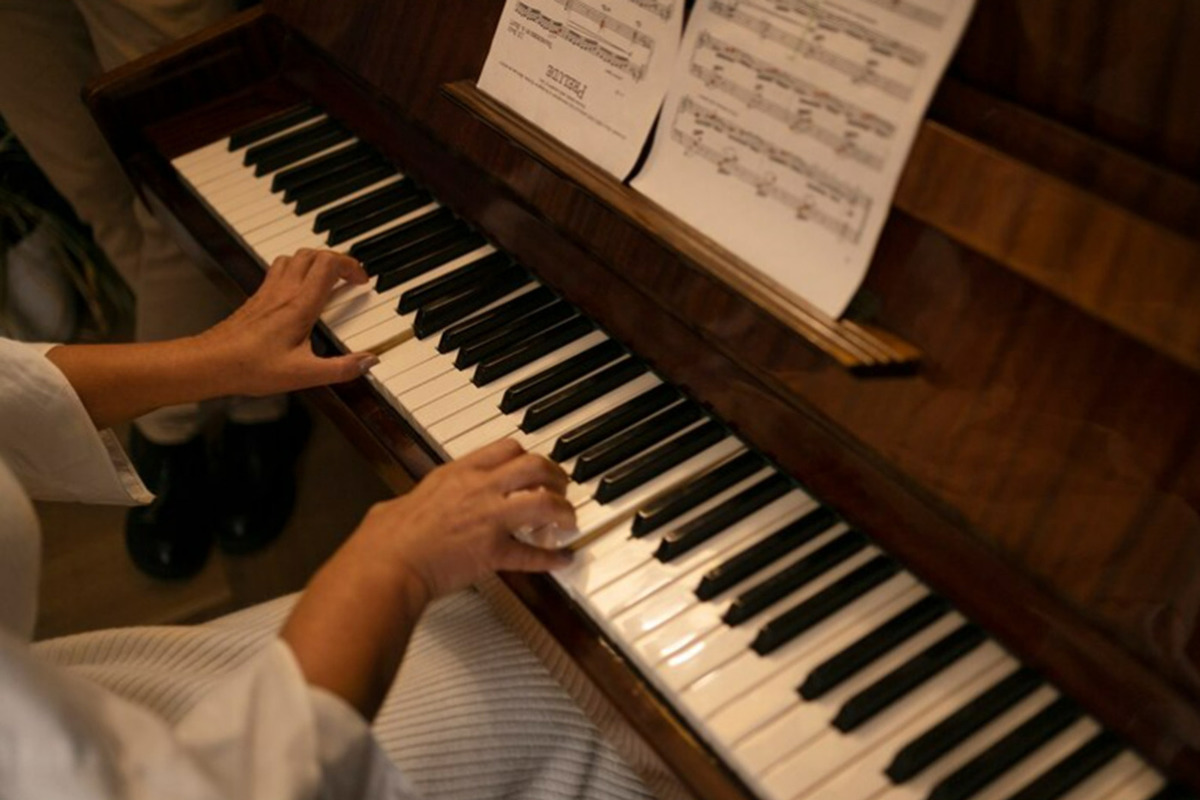Unexpected health effects of piano playing and choral singing revealed
[ad_1]

Playing music helps improve memory
Playing a musical instrument or singing in a choir can keep your brain healthy in midlife. Scientists have studied people’s experiences with music and their brain health. It turns out that playing a musical instrument, especially the piano, is associated with improved memory.
They say rock stars live fast and die young, writes the Daily Mail. But playing a musical instrument over a lifetime has been linked to improved brain health in older adults.
Scientists from the University of Exeter analyzed data from more than a thousand adults aged 40 and over who took part in the Protect study, which aims to understand how the brain ages.
Researchers have looked at how much experience people have with music – whether it’s playing an instrument or singing in a choir.
The team also examined their brain health, including mental processes that help with planning, concentration, remembering and juggling tasks – known as executive functions.
Researchers have found that playing a musical instrument, particularly the piano, is associated with improved memory and executive function.
Singing has also been linked to improved brain health, but the researchers said social factors of group membership may also play a role.
Anne Corbett, Professor of Dementia Research at the University of Exeter, said: “A number of studies have looked at the effects of music on brain health.
“Our Protect study gave us a unique opportunity to examine the relationship between cognitive performance and music in a large cohort of older adults. Overall, we believe that musicality may be a way to tap into the brain’s flexibility and resilience, known as cognitive reserve. Although more research is needed to explore this relationship research, our findings suggest that promoting music education would be a valuable part of public health initiatives to promote healthy lifestyles for brain health, as well as encourage older people to return to music later in life. There is significant evidence of the benefits of music groups for people with dementia, and this approach could be expanded as part of a healthy aging package for older people to enable them to proactively reduce risk and promote brain health.”
Commenting on the study, Caroline Scates, Deputy Director of Admiral Nurse Development at Dementia UK, said: “The findings of this study are positive and echo similar research into the benefits of listening and playing music for people living with dementia. Music can be a valuable form of communication for people living with dementia. with dementia, including listening to music, which a person can relate to even in later stages of the disease. abilities and means of communication. If you know someone living with dementia who enjoys or has enjoyed singing or playing a musical instrument, it may be helpful to keep these instruments or sheet music on hand for them to play or read.”
[ad_2]
Source link








